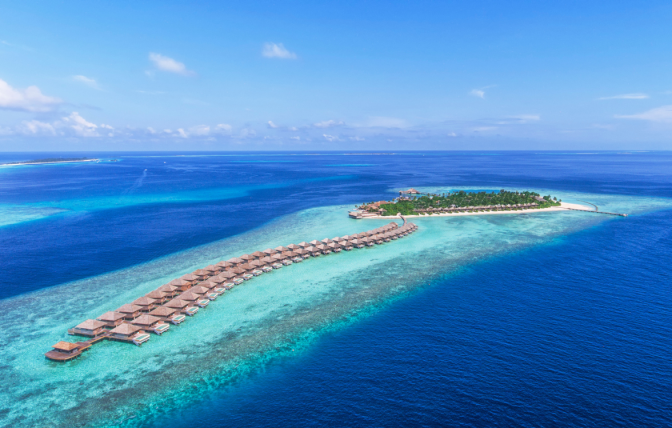


President has officially ratified the 13th Amendment to the Maldives Tourism Act (Act Number 2/99), introducing significant changes to the payment periods for lease extensions of properties used for the development of tourist resorts, and operating resorts as well. The amendment, signed into law by the President on 29 August 2024, reopens a window for reduced lease extension fees, providing a new opportunity for lessees to extend their lease periods under more favourable terms.
The primary change brought by the 13th Amendment is the revision of the lease extension fee payment schedules. The new rules apply to properties leased for developing tourist resorts, and operating resorts, where the previously available reduced extension fees expired on 27 December 2022. The updated payment structure offers different rates depending on the timing of the payment. For lease extensions up to 50 years, if the lessee agrees to settle the fee by 28 February 2025, the cost is set at USD 100,000 per year of lease extension. If the payment is made after 28 February 2025, the fee doubles to USD 200,000 per year of lease extension. For lease extensions up to 99 years, applicable where the lease period is currently 50 years, a lump sum payment of USD 5,000,000 is required if the lessee settles the amount by 28 February 2025. If the payment is made after 28 February 2025, the lump sum increases to USD 10,000,000. These changes introduce a clear incentive for resort developers and other leaseholders to extend their leases within the newly established six-month period to benefit from the lower fees.
The 13th Amendment also expands the eligibility criteria for parties that can apply for lease extensions up to 50 years. Previously, only parties to whom properties were leased before the commencement of the 2nd Amendment to the Act (8 September 2010) could apply. However, under the new provisions, any party, regardless of when the properties were leased, can now apply for an extension. This change allows a broader range of stakeholders in the tourism industry to benefit from the lease extension provisions, which could drive further investment and development in the sector.
The revised fee structure and broadened eligibility are expected to have a substantial impact on the Maldives’ tourism sector, which remains a cornerstone of the nation’s economy. By making it more accessible and cost-effective to extend resort leases, the government aims to encourage further investments in tourism infrastructure, enhancing the attractiveness of the Maldives as a premier destination. Tourism industry analysts believe that the changes could lead to an increase in lease extension applications, particularly from resort developers looking to secure their investments for a longer period. With the Maldives facing increasing competition from other luxury destinations, the 13th Amendment is seen as a strategic move to ensure sustained growth and competitiveness in its vital tourism sector.
The 13th Amendment took effect immediately upon ratification on 29 August 2024. Lessees and other stakeholders in the tourism sector now have until 28 February 2025 to capitalise on the reduced fees for lease extensions. This six-month window is a crucial period for resort developers to assess their financial positions and consider long-term commitments to their properties in the Maldives.
The new amendments reflect the government’s commitment to maintaining a dynamic and flexible legislative framework that adapts to the evolving needs of the tourism industry. It also illustrates the importance of providing clarity and incentives for investors in one of the Maldives’ most critical economic sectors. As the deadline for the reduced rates approaches, it is expected that there will be a rush of applications from parties looking to benefit from the more favourable terms. The government, through the Maldives Tourism Act, continues to play a pivotal role in shaping the future of tourism in the Maldives, balancing regulatory frameworks with the need for growth and sustainability.